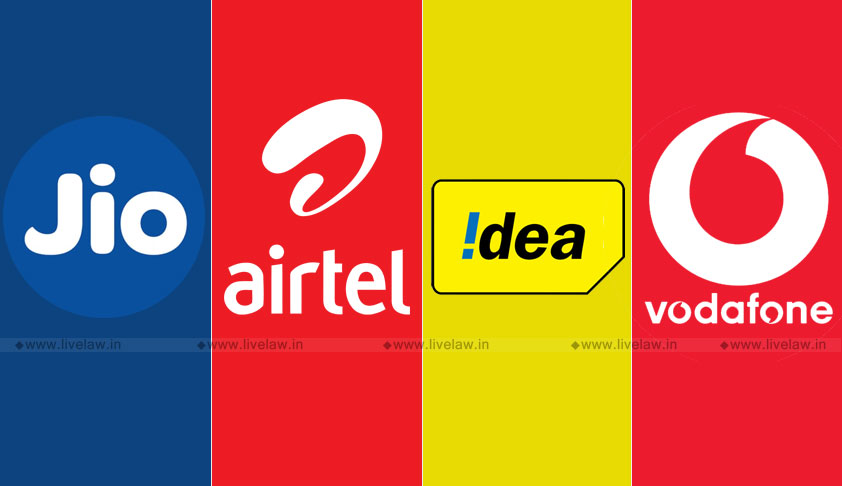
The Competition Commission of India (“CCI”) vide its order dated 21 April 2025, (‘settlement order”) approved the first-ever settlement application filed in India (by Google LLC.) , after the inclusion of , inter alia, the Commitments & Settlements provisions in India with effect from 06 March ,2024 under the Competition (Amendment ) Act, 2023.
The settlement order was passed after the conclusion of investigation concerning Google’s conduct in the Smart TV devices operating system market. The investigation was initiated based on allegations that Google had entered into anti-competitive agreements with various Smart TV Original Equipment Manufacturers (“OEMs”). Specifically, it was alleged that Google, being a dominant player in the market for licensable Smart TV operating system applications (including its Android OS) for Smart TVs , entered into agreements titled the Television App Distribution Agreement (“TADA”) and the Android Compatibility Commitments (“ACC”) with Smart TV OEMs. These agreements were alleged to contain restrictive covenants that said to have violated Section 3(4) and Section 4 of the Competition Act, 2002 (“the Act”). The CCI formed a prima facie opinion that Google had contravened various provisions of Section 4 of the Act and accordingly directed the Director General (“DG”) to investigate. The DG was also instructed to examine allegations of “refusal to deal” and “exclusive dealing” under Section 3(4), read with Section 3(1) of the Act.
Following the investigation, the DG submitted its report, finding Google in contravention of the relevant provisions of the Act . In response, Google opted to file a settlement application under the newly introduced settlement regime through 2023 amendment. After rounds of deliberation and consideration of responses, the CCI finally approved Google’s settlement application, marking a significant milestone as the first such approval under the amended framework.
Background of the case
An Information was filed by two individuals, namely, Kshitiz Arya and Purushottam Anand, against Google LLC and other Original Equipment Manufacturers (“OEMs”) before the Competition Commission of India (“CCI”), alleging that Google entered into anti-competitive agreements with the OEMs, in violation of Section 3(4) read with Section 3(1) and Section 32 of the Competition Act, 2002 (“the Act”). The allegations centered around two agreements: the TADA and the ACC. These agreements were alleged to contain restrictive covenants that led to anti-competitive practices, thereby contravening various provisions of Section 3(4) and Section 4 of the Act. The informants argued that through these agreements, Google successfully asserted its dominance in the market for licensable operating systems for Smart TVs. Additionally, Google was alleged to hold a dominant position in the market for app stores for smart TV operating systems, as nearly all Android TVs come pre-installed with Google’s proprietary Play Store. The informants further claimed that Google imposed several restrictions on Smart TV and mobile device OEMs through the TADA and ACC agreements, leading to an abuse of its dominant position under Section 4 of the Act too. The specific allegations included the bundling of Google’s Play Store with the Android TV operating system, ensuring that all Android TV-based Smart TVs came pre-installed with the Play Store. It was also claimed that Google’s ACC, formerly known as the Anti-Fragmentation Agreements (“AFA”), prevented OEMs from manufacturing, distributing, or selling devices running on competing forked Android operating systems, thereby denying market access in violation of Section 4(2)(c) of the Act. Furthermore, Google was accused of restricting competition by not providing its Play Store on other licensable operating systems, further hindering market access. The informants also contended that OEMs who entered into ACC/AFA agreements with Google were prohibited from developing their own forked Android-based operating systems, which created barriers to entry and limited innovation in the market. Additionally, the agreements were said to impose supplementary obligations on OEMs that were unrelated to the licensing of the Android OS, thereby restricting their freedom of action across their entire device portfolio, not just those devices where the Android TV OS or Play Store was pre-installed, thus also violating Section 4(2) (d) of the Act.
The CCI after considering the information and response of Google was of the prima facie view that Google has contravened various provisions of Section 4 of the Act. This was due to its requirement for device manufacturers to sign the ACC as a prerequisite for pre-installing its proprietary apps, including the Play Store, thereby restricting OEMs from developing or distributing devices that use competing Android versions. Additionally, the ACC’s obligations apply to OEM’s entire device portfolio, not just Android TV OS devices. The mandatory pre-installation of Google apps under TADA and the leveraging of Play Store dominance to promote its other services like YouTube were also cited as anti-competitive practices, as outlined in the order. Accordingly, the Commission directed the DG to cause an investigation to be made under the provisions of Section 26(1) of the Act. The Commission directed the DG also to examine the allegations of “refusal to deal” and “exclusive dealing” in terms of the provisions contained in section 3(4) read with Section 3(1) of the Act as well.
The investigation by the DG found contravention against Google, after which the copy of the investigation report was forwarded to Google. After receiving the investigation report, Google submitted the Settlement Application dated 21.05.2024 (‘Settlement Application’) under Section 48A of the Act read with the Competition Commission of India (Settlement) Regulations, 2024 (‘Settlement Regulations’). Google requested the Commission to allow the Settlement Application under Section 48A of the Act and in terms of Settlement Regulations place the proceedings initiated against Google in abeyance till a final decision on the Settlement Application or till such time as may be decided by the Commission. Post consideration of the response of the DG and the parties including the third parties in the investigation, the CCI finally approved the Google’s settlement application.
Settlement as proposed by Google
Google submitted a Settlement Application to the CCI regarding its practices for Android TV and the Television App Distribution Agreement (“TADA”). Under the proposed settlement, Google promised to introduce a standalone license called the “New India Agreement” for the Google Play Store and Play Services for Android smart TVs sold in India, without imposing placement or default service requirements. It also agreed to eliminate the requirement under TADA for devices shipped to India without preloaded Google apps to have a valid Android Compatibility Commitment (“ACC”) and to formally communicate these changes to its Android TV partners, including reminding them of their right to use open-source Android or alternative operating systems like Tizen, WebOS, and Roku OS. Google committed to honoring these proposals for five years and agreed to submit regular compliance reports to the CCI. Initially, on 5 June 2024, the CCI decided to keep the inquiry against Google in abeyance and invited objections and suggestions. Later, Google informed the CCI about planned global changes, including ceasing certification of new Android TV models after June 2025, while continuing support for existing models until 2029. Considering these updates, on 10 July 2024, the CCI again decided to invite objections and suggestions on the updated settlement summary and forwarded it to informants, the Director General (DG) and third parties involved in the investigation.
Response by the DG
The DG, in response to the proposed New India Agreement, stated that the proposal appears
relevant in addressing the concerns raised during the investigation. However, the DG was of the view that at present, the Play Store and Play Services are provided free of charge to OEMs that sign the TADA and ACC agreements. Since the proposed new agreement includes a fee, OEMs may be better positioned to provide comments on this aspect. The DG acknowledged that waving TADA’s requirement for a valid ACC would enable OEMs to distribute non-compatible devices
alongside Android OS-based TVs without violating ACC. However, the investigation found that the mandatory inclusion of ‘Play Store’ and ‘Play Services’ forces OEMs into TADA and ACC agreements. While Google proposed alternatives like AOSP, Tizen, WebOS, and Roku without requiring its applications, it remained unclear whether OEMs can develop, sell, or distribute Android forks. Additionally, the investigation highlighted the importance of seamless app updates and bug fixes via Google Play, but Google had not confirmed if its code updates will be available to AOSP simultaneously. The DG also acknowledged that Google’s proposal, allowing device manufacturers to release devices with only the Play Store preloaded and without other Google apps or placement/default requirements, appears relevant in addressing the concerns raised during the investigation.
Response by the Informants
The Informants in their response to the settlement proposal, stated that there is a lack of
clarity regarding the scope and extent of the waiver and any additional obligations Google
may impose under the New India Agreement or the revised TADA template. They pointed
out that the proposal does not address preinstallation requirements or the absence of an
option to uninstall Google’s proprietary apps. Furthermore, they argued that Google’s
commitment to modifying its conduct for only five years is insufficient, given that its
anticompetitive practices have reinforced its market dominance for over a decade. A five-year commitment is inadequate to redress the significant legal harm suffered by
stakeholders, including Indian startups, the local business ecosystem, and consumers.
Additionally, they contended that Google is intentionally restricting TV OEMs using forked
Android from licensing its essential apps, thereby limiting their ability to provide users with
access to crucial applications for downloading and updating other apps.
Google Response to DG’s and Informants Responses
In response to the DG’s concern regarding the uncertainty over whether TADA signatories would be permitted to manufacture and market Android forks under the proposed waiver, Google clarified that it has proposed to eliminate the requirement in the TADA to have a valid ACC for devices shipped in India that do not preload Google apps. In other words, the waiver enables OEMs to sell, develop, and distribute Android forks that do not carry Google’s proprietary apps. Furthermore, the waiver is not limited to smart TVs. That is, because of the proposed waiver, a company would be free under its TADA to not only launch incompatible Android smart TVs but also other types of incompatible Android devices such as smart watches or mobile devices. In response to the DG’s concern regarding the availability of its “codes” to AOSP at the same time as Android TV, Google stated that Android’s APIs are updated with every new Android release.
In response to the Informants’ objections to its Settlement Proposal, Google submitted that offering a standalone Play Store license under the New India Agreement directly addresses concerns about Play Store licensability. Regarding API restrictions on forked Android-based OSs, Google clarified that the New India Agreement would impose no placement or other requirements. Google argued that the proposed five-year settlement term is reasonable, as it aligns with the existing TADA timelines and noted that it will cease certifying new Android TV devices after June 2025 but continue supporting existing partners until 2029, emphasizing there is no legal obligation to extend Android TV’s lifespan beyond that. Lastly, Google dismissed concerns about the inability to uninstall preinstalled Google TV Services (GTVS) apps, stating that under the New India Agreement, OEMs can offer devices with only the Play Store and no other Google apps, making uninstall functionality unnecessary.
Analysis and decision by the Commission
The CCI, in evaluating Google’s proposed settlement regarding its Android TV practices, acknowledged that the introduction of the “New India Agreement” marks a significant shift from the existing Android TV Application Distribution Agreement (TADA). The new agreement allows OEMs to license the Google Play Store independently, without mandating the preinstallation of the complete suite of Google applications (GTVS), such as YouTube or Google Assistant. Importantly, it removes obligations related to default settings and app placements, thus addressing key concerns raised in the DG’s report regarding forced bundling and reduced OEM autonomy. The Commission noted that the New India Agreement would be offered to a wide range of manufacturers including those using alternative smart TV operating systems (like Tizen or Roku) and Android forks without imposing discriminatory conditions. Google also proposed to phase out certification of new devices under TADA after July 2025 while continuing support for existing devices until 2029, giving OEMs a transitional period. Furthermore, by waiving the ACC requirement through binding letters and amending the TADA template, Google aims to remove the linkage between licensing Google apps and restricting OEMs from developing or launching non-compatible Android devices across categories, including smart TVs, watches, and phones.
The Commission observed that the co-existence of TADA and the New India Agreement provides OEMs with greater flexibility to customize devices based on consumer demand and commercial strategy, allowing for the preinstallation of rival apps and monetization opportunities through promotional agreements. The proposal also addresses DG’s findings regarding the denial of market access to Android fork developers and the imposition of supplementary obligations under Section 4 of the Act. On the determination of the settlement amount, the Commission referred to the 2024 Penalty Guidelines and Settlement Regulations, which prescribe the calculation of a base amount derived from the relevant turnover, adjusted for mitigating/aggravating factors, and reduced by a 15% settlement discount. Google contended that Android TV generates negligible revenue in India, with most services being royalty-free, and urged that the penalty base should be limited to revenue directly linked to Android TV (such as ads or video-on-demand services).
The Commission disagreed with Google’s submission regarding the exclusion of YouTube and Play Store revenues from the relevant turnover. It finds that these revenues are integral to the market dynamics and confirms Google’s abuse of its dominant position.
Coming to the assessment of mitigating and aggravating factors, the CCI, by a majority order after considering the submissions made by the Google, that it has continuously aided the DG and the Commission in investigation and has a dedicated competition compliance program in place to advise the business teams against any competition law violations in India and across the globe and after applying 15% settlement discount reduced the amount of penalty to Rs 20.24 Crores from Rs 134.93 Crores .
Google is required to implement these changes and submit annual compliance reports for five years.
Dissenting Opinion on Settlement Proposal
Member Mr. Anil Agrawal in his dissent order found that the settlement proposal did not adequately address the competition concerns identified by the DG and emphasized on the need for a “single agreement” that complies with the Competition Act. According to the Member, the settlement proposal did not eliminate existing anti-competitive practices under TADA and felt that the dual structure of licensing options created an imbalance favouring existing arrangements. The settlement proposal also fails to address the tying of YouTube with the Play Store, which remains a significant concern and called for a comprehensive modification of TADA or its replacement to ensure compliance with the Act.
COMMENTS: This case marks the begining of an accepted universal trend of settlling cases of Antitrust violations by large corporates , particularly, the Big Tech in India . Noticaebly, after the acceptance of settlement proposals no appeal shall lie against the order .
#Google #AndoidOS #SmartTV #Antitrust







